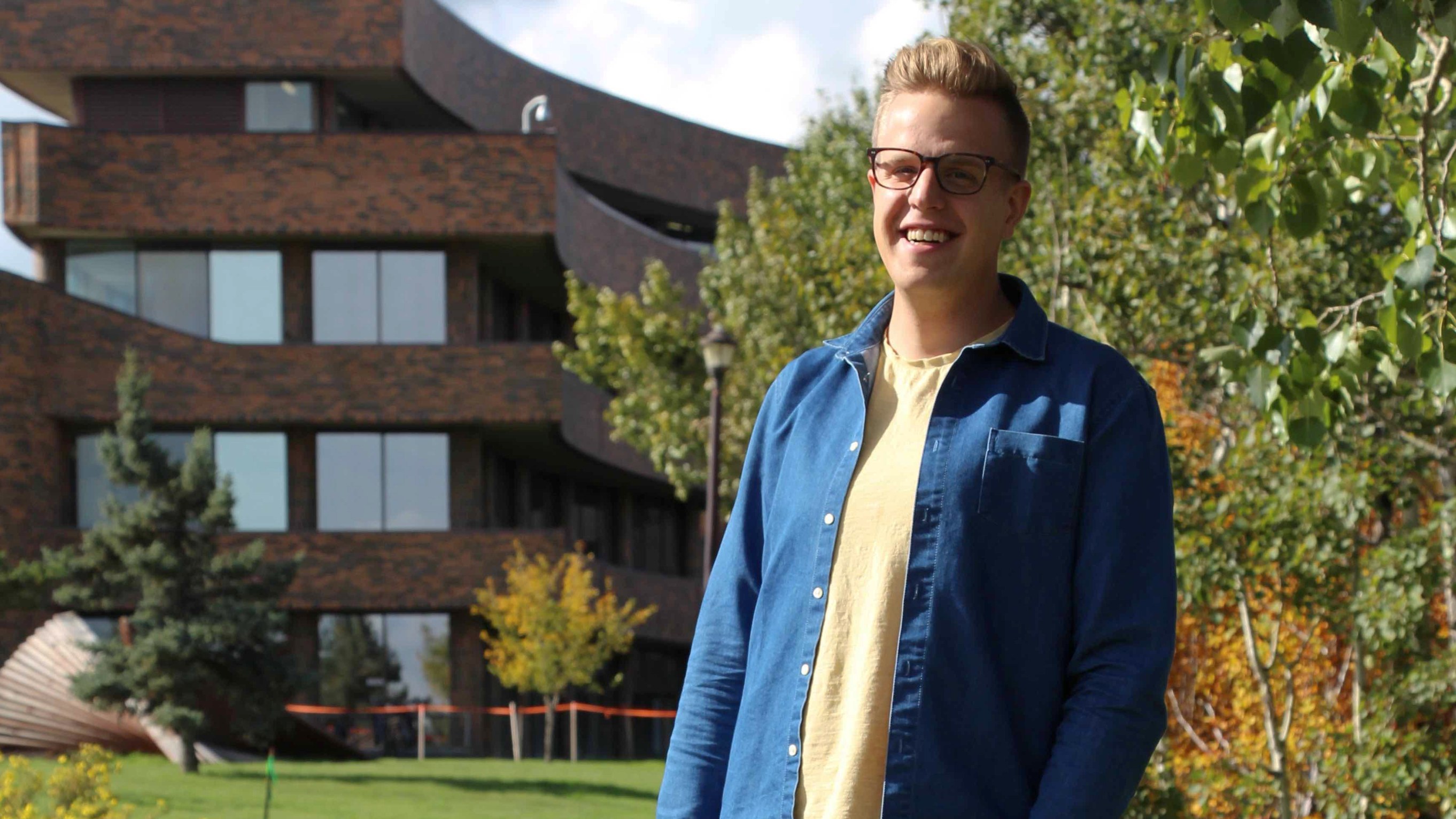Growing up in resource-rich Grande Prairie, Tyler Paetkau said it was just kind of assumed that upon graduating from high school, a person would start working in the well-paying energy jobs that abounded in the oilpatch.
So that’s what he did. Paetkau, who graduates from the University of Alberta this week with a bachelor of arts degree with a major in philosophy, worked in the oilpatch for a couple of years but said he always felt the pull of a post-secondary education and decided to attend Grande Prairie Regional College.
“Post-secondary education wasn't really seen as a live option,” he said. “It's something that I had to work for and find my way into. I think that's why I'm such an advocate for access to education now.”
Over the next three years Paetkau developed an interest in philosophy, which he said grew out of what he saw as a big disconnect between the people he had previously worked with and respected, and people who were pursuing interests in academia.
“It seemed as if there was a lot of harm coming from the fact that those two groups of people didn't seem to be communicating really well with each other,” he said.
“Philosophy for me was a way to kind of explore that and maybe see if I could help bridge that divide.”
He said the discussion around climate change policy was a non-starter, because for many in the region it was seen as an attack on their way of life and as something that is disconnected from reality.
“I think the people in academia often fail to consider the perspective of those people. If we're going to have an effective climate change policy, those two groups of people have to be able to see more eye to eye.”
Student and caregiver
Paetkau knew that if he wanted to really test and pursue his thinking, he needed to get to the U of A.
However, he was faced with a choice between pursuing his academic dreams and spending some quality time with his grandfather, who had recently been diagnosed with Alzheimer's and Parkinson's, both of which were starting to progress pretty badly.
“It just kind of worked out that I was wanting to be able to spend more time with him and he needed somebody to be around more,” he said.
Paetkau stayed on at college and mixed his time between student and caregiver.
“It was a fairly intense experience, but I am definitely glad I took the opportunity to do it,” he said.
With his grandfather now in a long-term care facility, in 2019 Paetkau made the move to Edmonton.
He signed on as a vice-president of the Undergraduate Philosophy Association, and instantly found a group of peers there, along with an opportunity to connect with new students and help them find their feet.
“I know a lot of people, depending on where they're at in life, don't even consider post-secondary to be a possibility. But they just need those supports and people there to help them find their way into it.”
Exploring why people lose trust in science
In exploring his work around energy communication, Paetkau became interested in why people get turned away from the medical system—bits of which are at the root of growing mistrust that jurisdictions around the world struggle with as the end of the pandemic nears.
“I’m looking into vaccine hesitancy and science denialism more broadly within the medical community and trying to bridge that divide between the medical community and public policy, and regular, everyday people,” he said.
His activity in the community and academics helped land Paetkau one of 20 inaugural McCall MacBain Scholarships. The award, Canada’s first comprehensive leadership-based scholarship for master’s and professional studies, will allow him to attend McGill University’s master of arts in philosophy (bioethics) program.
“I hope to explore the ethical and epistemic structures that lead to science denialism. We are facing grave challenges, from declining vaccination rates to climate change. Public support for science is key to addressing these issues, and I plan to investigate why support is declining and what can be done to increase it.”
